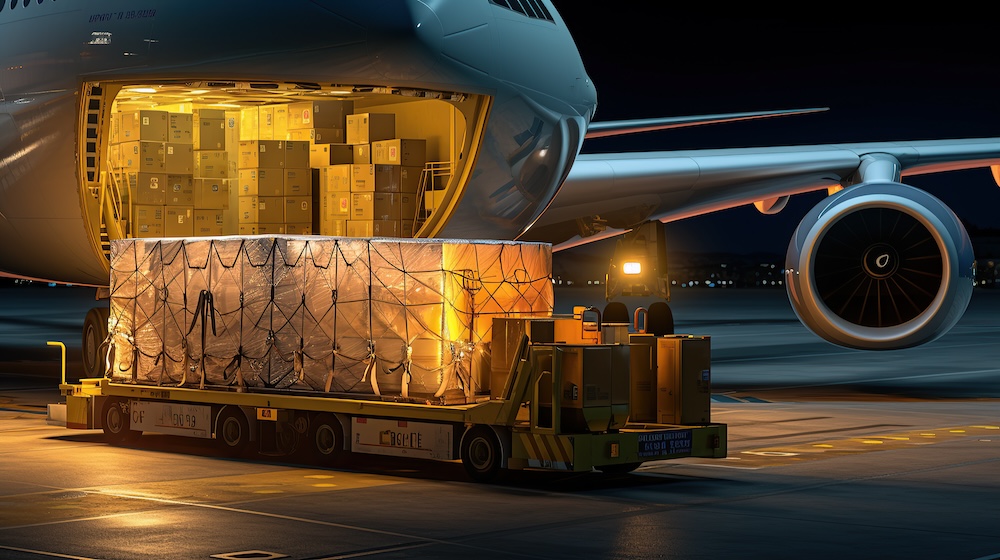 Alexandra Herdman Senior Policy Manager, Logistics UK
Alexandra Herdman Senior Policy Manager, Logistics UK

While 90 per cent of the UK’s goods may arrive by sea, airports import 40 per cent of goods by value. Before the Covid pandemic, the aviation sector supported over half a million jobs and contributed £22bn to the UK economy, while the direct and wider impact of night flying (23:00 to 06:59) generated a significant £16.5bn in GVA in 2019, supporting around 213,200 jobs.
As the sector continues its recovery following the pandemic, it is clear aviation is key to the ongoing success of the UK’s economy, and night flights have a major role to play in this success.
Importance of night flights
Night flights provide vital support for many industries, including fresh produce, luxury goods, technology and manufacturing, financial services, emergency services and medical transport, as well as express mail services which operate on a 24-hour basis. Any further restrictions to round the clock access at airports would increase delivery times, disrupt supply chains and ultimately lead to increased costs for consumers and businesses.
The peak arrival time for inbound express freight is between 03:00 and 03:59, during the so-called night period, as volume is brought into the UK ready for morning deliveries. General cargo is also significant during the night period, with a significant volume shipped between 23:29 and 01:59 across the UK. Without the ability to fly at night, express operators would not be able to provide services linking UK businesses with the rest of the world. Night flights make the UK an international trading nation; as an island nation we are even more reliant on air freight than other countries.
Night flying also adds significantly to airport capacity in the UK, contributing to UK government policy to “make best use of existing runways”. With the demand for passenger flights now rising post-pandemic, airports such as London Heathrow and London Gatwick are at the extreme end of this capacity shortfall, but it remains an issue across many larger UK airports where demand for slots at each end of the day would exceed the available capacity if runways could not be used in the night periods.
Quota Count and noise mitigation
One of the largest areas of concern for night flying is disruption caused by noise, an issue which the aviation sector has always taken seriously. Part of the required noise mitigation is a system of Quota Count (QC), used in the UK by London's Heathrow, Gatwick, and Stansted airports, which limits the amount of noise generated by aircraft movements at night-time. Noisier aircraft receive a higher QC and airports are allocated a total quota of noise they can generate in winter and summer seasons.
Airports are incentivised to use quieter aircraft wherever possible, as when the quota has been used up, no more night-time movements are allowed to take place
Night flight regime from October 2025
The current night flight regime is set to expire in October 2025, and a government consultation seeking views on proposals for the next night flight regime has recently closed.
A key expectation of the current regime was for the government to have completed its Aviation Night Noise Effects (ANNE) study, to examine the relationship between aviation noise on sleep disturbance and annoyance, and how this varies by different times of the night. But because the recovery of the aviation sector, following the Covid pandemic, has taken longer than anticipated the study has not been completed as planned.
The final ANNE study is not expected before the end of 2025 and, as it will be critical for shaping the future policy on night flights, the government has proposed a bridging night flight regime of three years that will cover October 2025 to October 2028. This will maintain the current situation and keep movement limits and noise quota limits for the next regime the same as they are now at Heathrow and Gatwick; the government believes existing restrictions on night flights are sufficient to meet the new night-time noise abatement objective.
The Department for Transport has suggested different options for Stansted Airport, but none of the proposed options allow for the opportunity of growth of cargo which is something we would want to see within the proposals. While the ANNE study is important for understanding the perceived negative impact of night noise from flying, it is also vital for government to look at the perceived positive impact of night flying from a regional and national perspective.
A government study should be undertaken to look at the wider benefits of night flights including on employment, business and trade.
For more information, please visit: www.logistics.org.uk